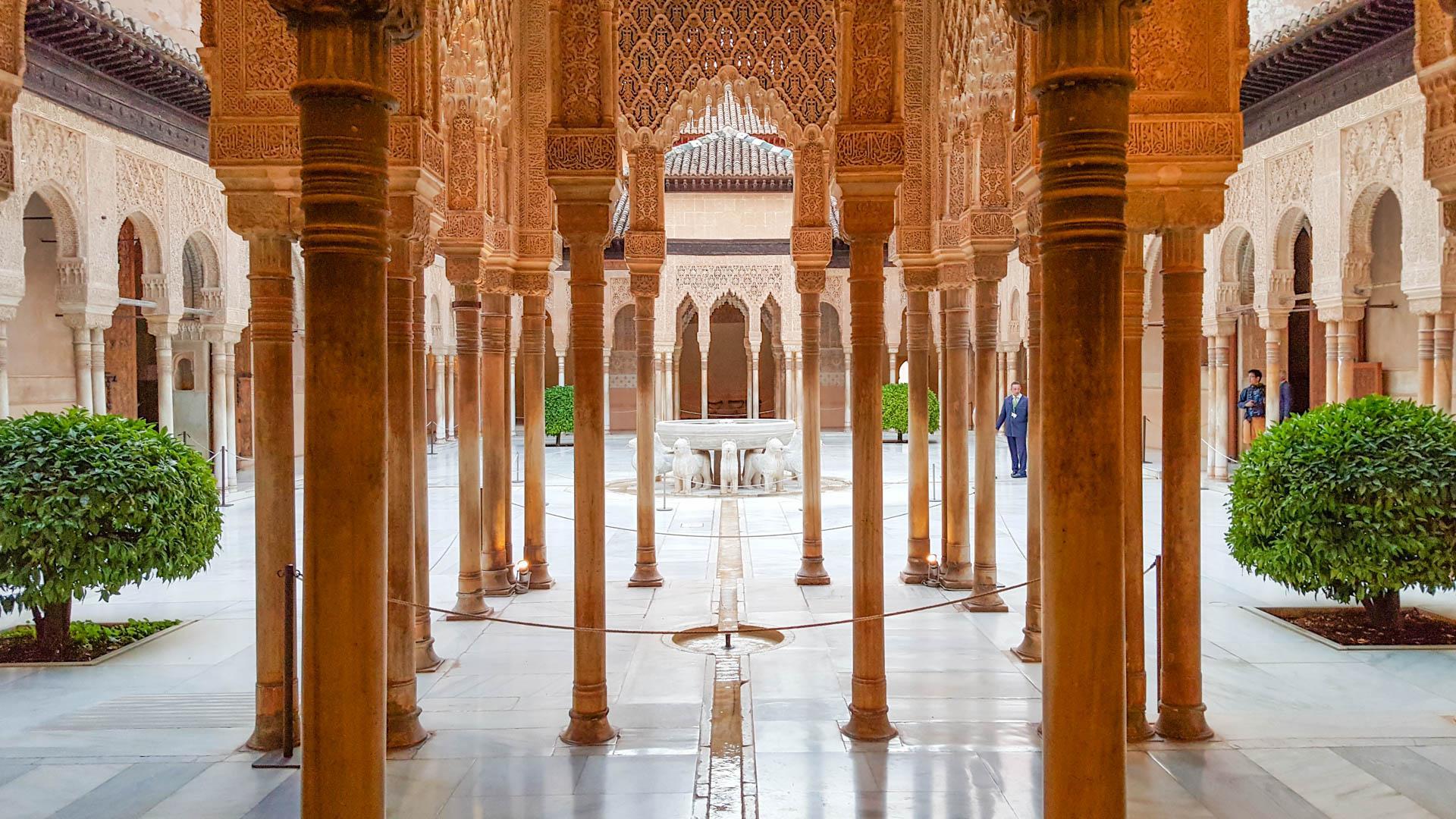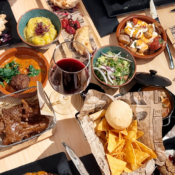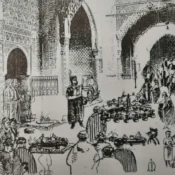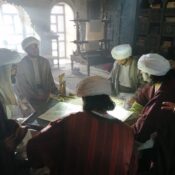Parties in Alhambra Palaces
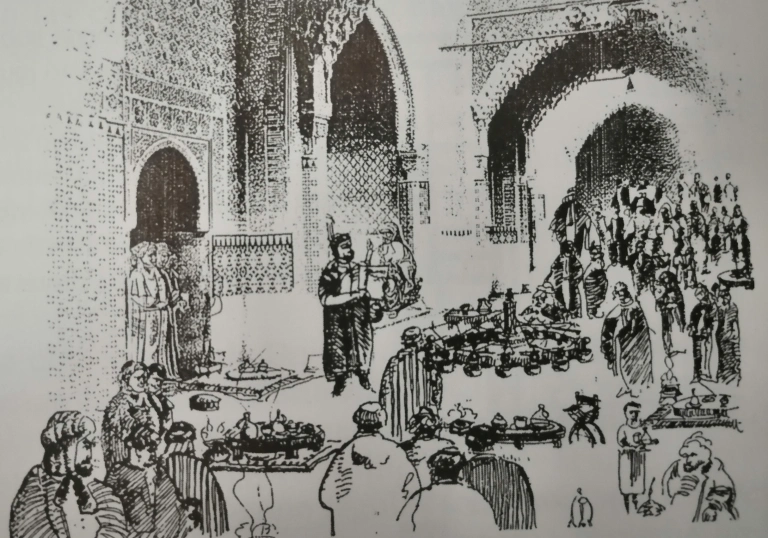
Parties in Alhambra Palaces
The Alhambra, the Nasrid palatine city, featured the Nasrid Palaces as the royal residence of the emirs and their families. And they weren't just rooms used for everyday life; those walls have witnessed intrigue, fortune, misfortune, and also... celebrations and parties.
The hall designated for this purpose is known as the Hall of the Kings, and is located in the Palace of the Lions. There are three alcoves that preside over the room. The emir sat in the central alcove, decorated with a painting on the ceiling showing ten figures representing his ancestors, giving him legitimacy as a ruler. The other guests would occupy the remaining alcoves, to the right and left, and the servants would offer all kinds of delicacies kept in the cupboards also found in the room.
The festivities offered were conditioned and presided over by religion and power; at the reception, the emir took the preeminent position and the guests greeted him. After this, a communal prayer was recited, and then they took their places according to their political and social class. They could last all afternoon and even into the evening, thus fulfilling the obligation to pray, reading texts from the Quran, and even singing accompanied by musical instruments such as the wooden flute.
The guests would wash their hands in ewers* and taste delicacies of all kinds (lamb, pigeon, sweets...) and once they had finished eating they would wash and perfume their hands and mouths with rose water.
In the rooms dedicated to these festivities there were clocks that would ring a small copper ball when it fell onto a plate, while a scroll containing a poem, generally in praise of the sultan, was placed on it.
As you can imagine, everything was an intoxication of the senses: the sight was delighted with the luxury of the rooms and clothes, the taste with the delicious delicacies, the smell with the aromas of the food and the perfume of burnt amber, the hearing with the music and the ringing of copper and the touch with the softness of the silks and wools of dresses, carpets, etc.
*Ewers: ceramic jugs with holes in the mouth to distribute the water in small streams.
All categories
- Arquitectura islámica
- Arte y decoración en la Alhambra
- Visitors Tips
- Cultura andalusí
- Granadian Sayings
- Folklore
- Granadian Cuisine
- Granada
- Granadian Province
- Alhambra History
- Distinguished Granadians
- Useful information
- Granadian Literature
- Granadian Literature
- Magic, legends and mystery
- Granadian Miscellany
- Granadian Nostalgia
- Granadian Traditions
- Granadian Traditions
- Guided tours
Latest posts
